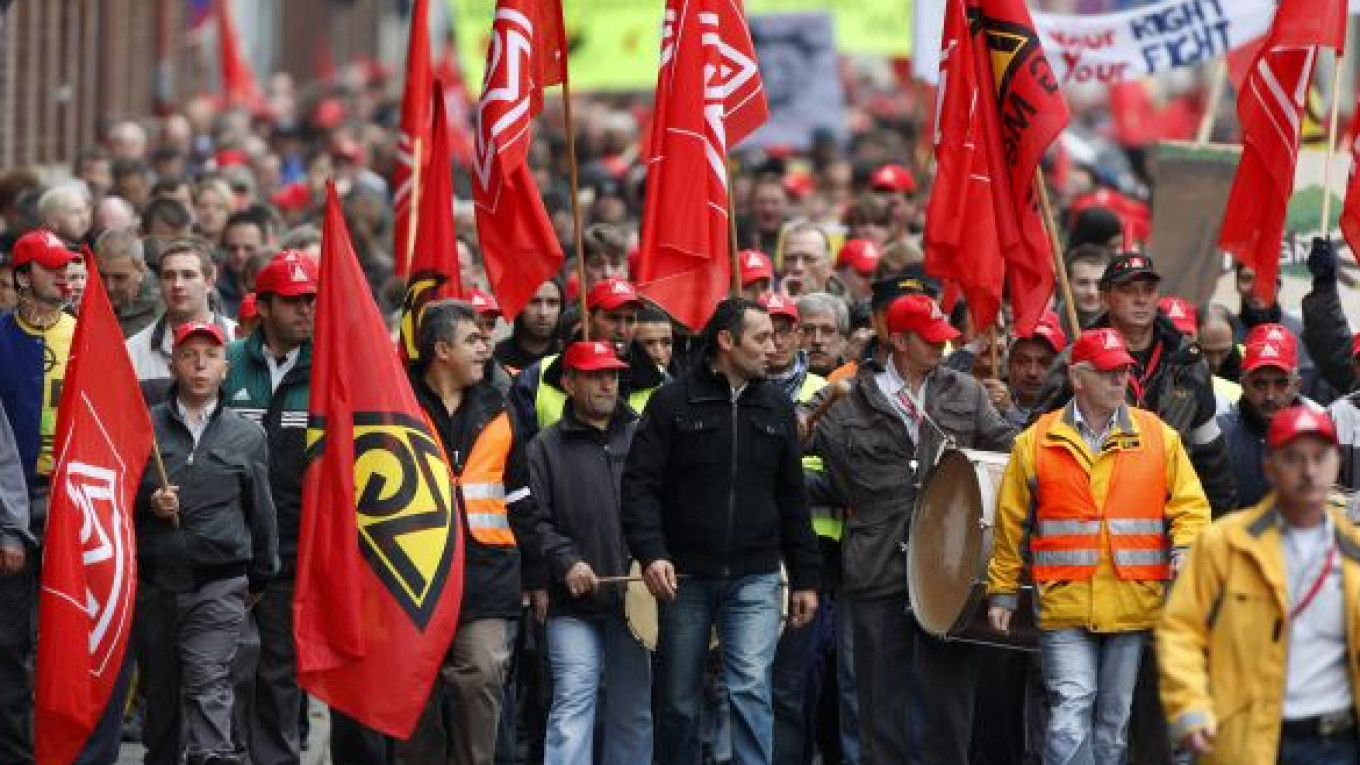Prime Minister Vladimir Putin lashed out at General Motors on Thursday after a Russian-backed bid to buy carmaker Opel fell through, hinting that there may be repercussions down the road because of GM’s “disregard for its partners.”
“Nobody warned anybody about anything,” Putin said, referring to the surprise decision by the U.S. company not to sell its European unit. State-owned Sberbank and parts maker Magna had made preliminary agreements to buy the European carmaker, with GAZ Group named as a potential industry partner.
“Everyone was notified after the fact, despite the agreements that had been reached and the documents that had been signed, including legal ones,” Putin said.
The board’s ruling “doesn’t harm our interests, but it shows a rather peculiar communication style that our American partners use with their counterparts,” Putin said. “This is a good lesson. … We must take into account this kind of cooperation with our partners in the future,” he said, adding that the decision primarily showed disrespect to GM’s European partners.
Despite some strong language, American companies should not fear any reprisals, said Dmitry Baranov, a senior analyst at Finam Management. “Clearly, Putin’s reaction is a negative one, but since this is a question of international relations, where there is a certain etiquette, his remark is also reasonable,” he said.
Any measures against U.S. companies could potentially backfire on Russian companies in the United States, so it is not in the interest of either side to take some kind of action after they have “reset” their relations, Baranov said.
The U.S. automaker said late Wednesday that the question of selling or keeping Opel was a “close call all the way” and essentially a “coin toss” after three months of deliberation. GM expects to cut about 20 percent of Opel’s 50,000-person work force, GM vice president for corporate planning John Smith said on a conference call.
Thousands of German workers rallied to protest GM’s decision Thursday. “Our trust [in GM] is now at zero, and that’s the heart of the problem,” Opel labor leader Klaus Franz said at the protest in Rüsselsheim, Germany, The Associated Press reported.
But the attitude of the German government, sharply critical Wednesday, moderated slightly Thursday. Chancellor Angela Merkel and U.S. President Barack Obama agreed to coordinate on Opel’s reconstruction, which will now have to be carried out by General Motors.
Russia had been hoping that closer ties with Opel would help reinvigorate its own flailing car industry, which currently requires huge levels of state support just to maintain operations.
Nevertheless, Putin sounded a note of defiance Thursday. “Concerning our own plans, this doesn’t change anything,” he said. “We will be working with everyone, including American producers. … “We will continue to support [GM’s] activity in Russia, along with European automakers and everyone who has come to our market.”
“Our plans will be fulfilled, there is no doubt about it,” Putin said.
A Message from The Moscow Times:
Dear readers,
We are facing unprecedented challenges. Russia's Prosecutor General's Office has designated The Moscow Times as an "undesirable" organization, criminalizing our work and putting our staff at risk of prosecution. This follows our earlier unjust labeling as a "foreign agent."
These actions are direct attempts to silence independent journalism in Russia. The authorities claim our work "discredits the decisions of the Russian leadership." We see things differently: we strive to provide accurate, unbiased reporting on Russia.
We, the journalists of The Moscow Times, refuse to be silenced. But to continue our work, we need your help.
Your support, no matter how small, makes a world of difference. If you can, please support us monthly starting from just $2. It's quick to set up, and every contribution makes a significant impact.
By supporting The Moscow Times, you're defending open, independent journalism in the face of repression. Thank you for standing with us.
Remind me later.


